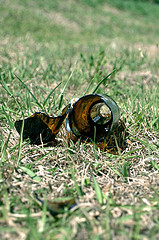Booze plans falling short
 An expert review has found some gaps in local government responses to alcohol-related harm.
An expert review has found some gaps in local government responses to alcohol-related harm.
Local governments have a key role in reducing alcohol-related harm, yet there has been very little research investigating their interventions.
In a recent study, officers with alcohol policy knowledge within local governments were surveyed, while their councils’ responses were analysed alongside.
The researchers found that responses to alcohol-related harm predominantly included bans on alcohol in public spaces, licensed premises planning and alcohol-free youth events.
Half of the councils studied had implemented liquor forums or accords, while most also implemented education programs in sporting clubs, schools or workplaces.
Some of the local governments reported that the reduction of alcohol-related harm was not considered a priority.
The study shows there is a lot of variation in local governments’ activity in, and responses to, reducing alcohol-related harm.
One major contradiction emerged.
Most local governments “recognised the long‐term health harms of alcohol in their health planning documents, however, most prioritised interventions targeting short-term amenity and safety harms,” the researchers found.
They recommended stronger efforts.
“Changes to Victorian planning and liquor licensing legislation to give additional powers to LGs [local governments] and providing pre‐developed alcohol programs with dedicated funding should be considered,” the study concludes.
The full paper is accessible here.








 Print
Print